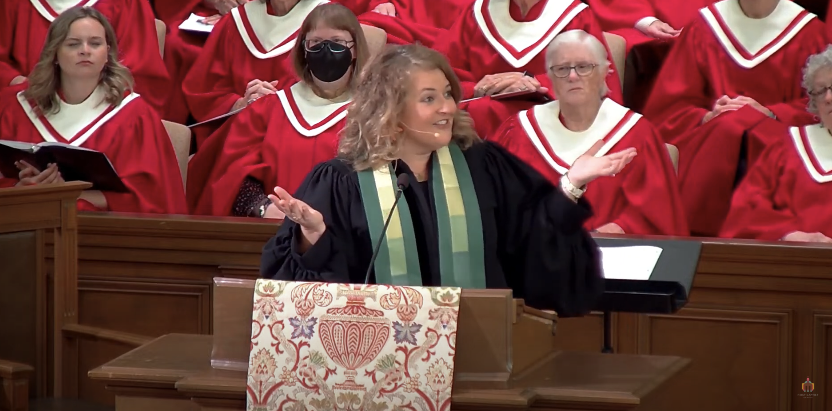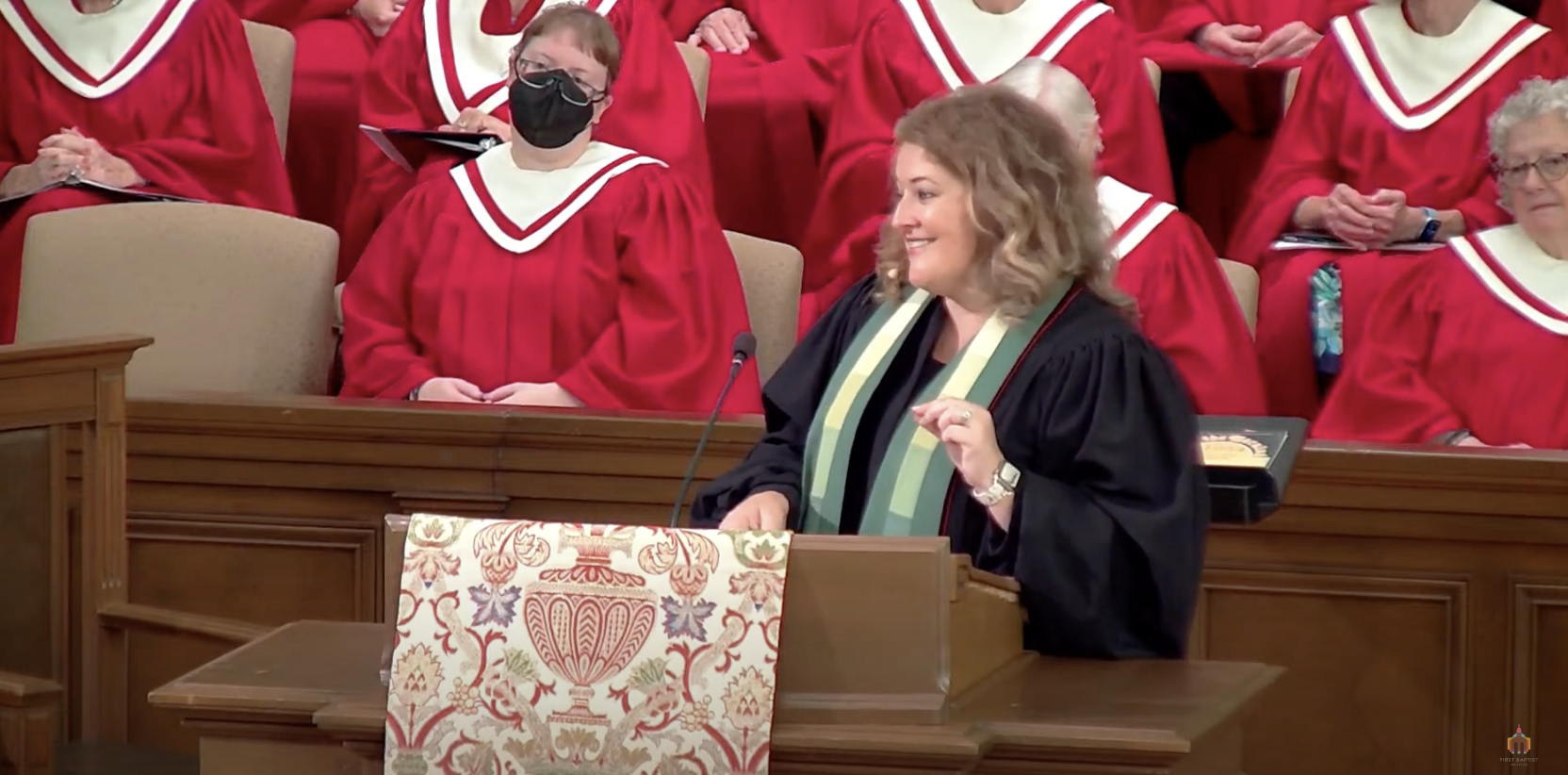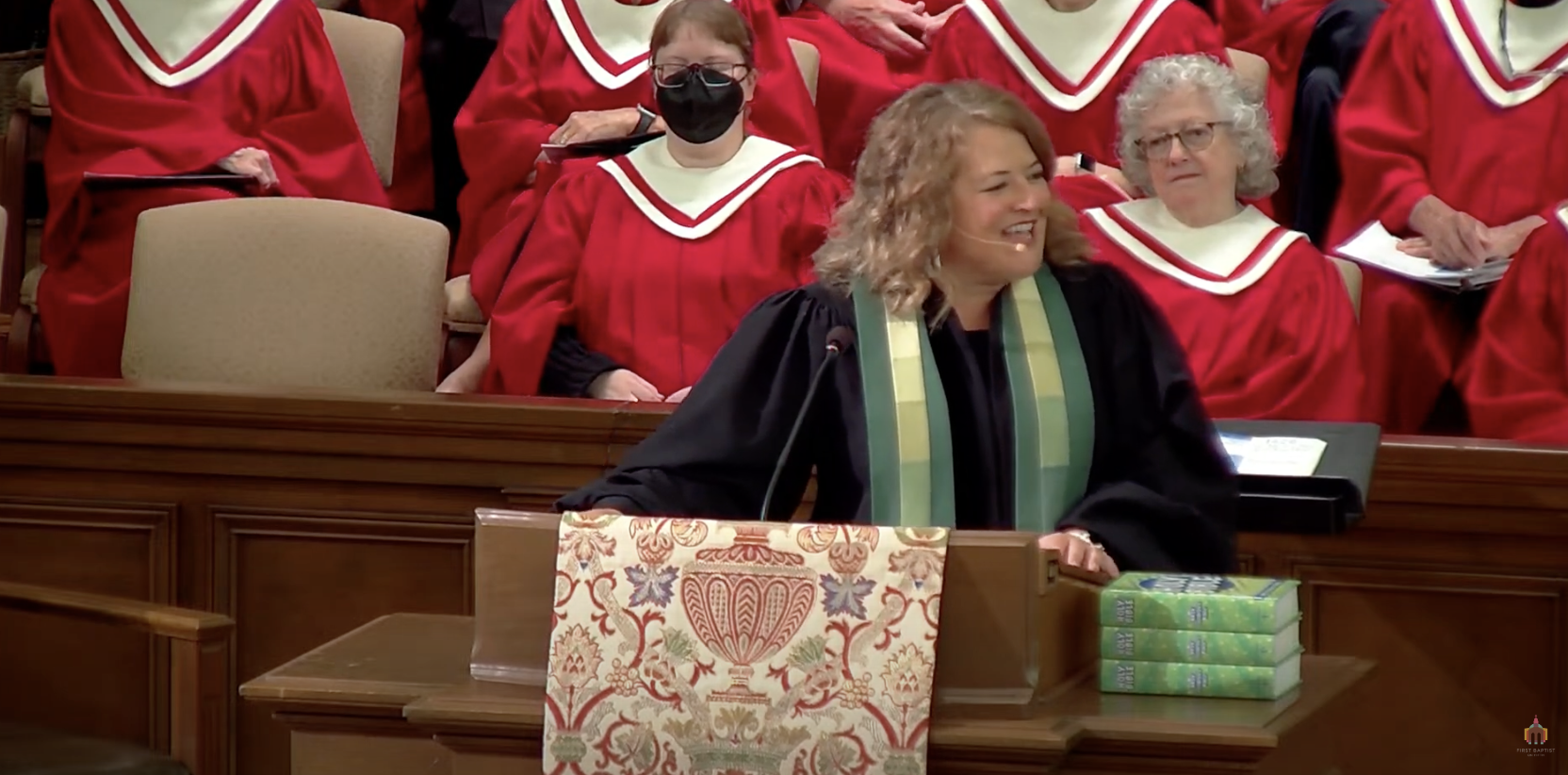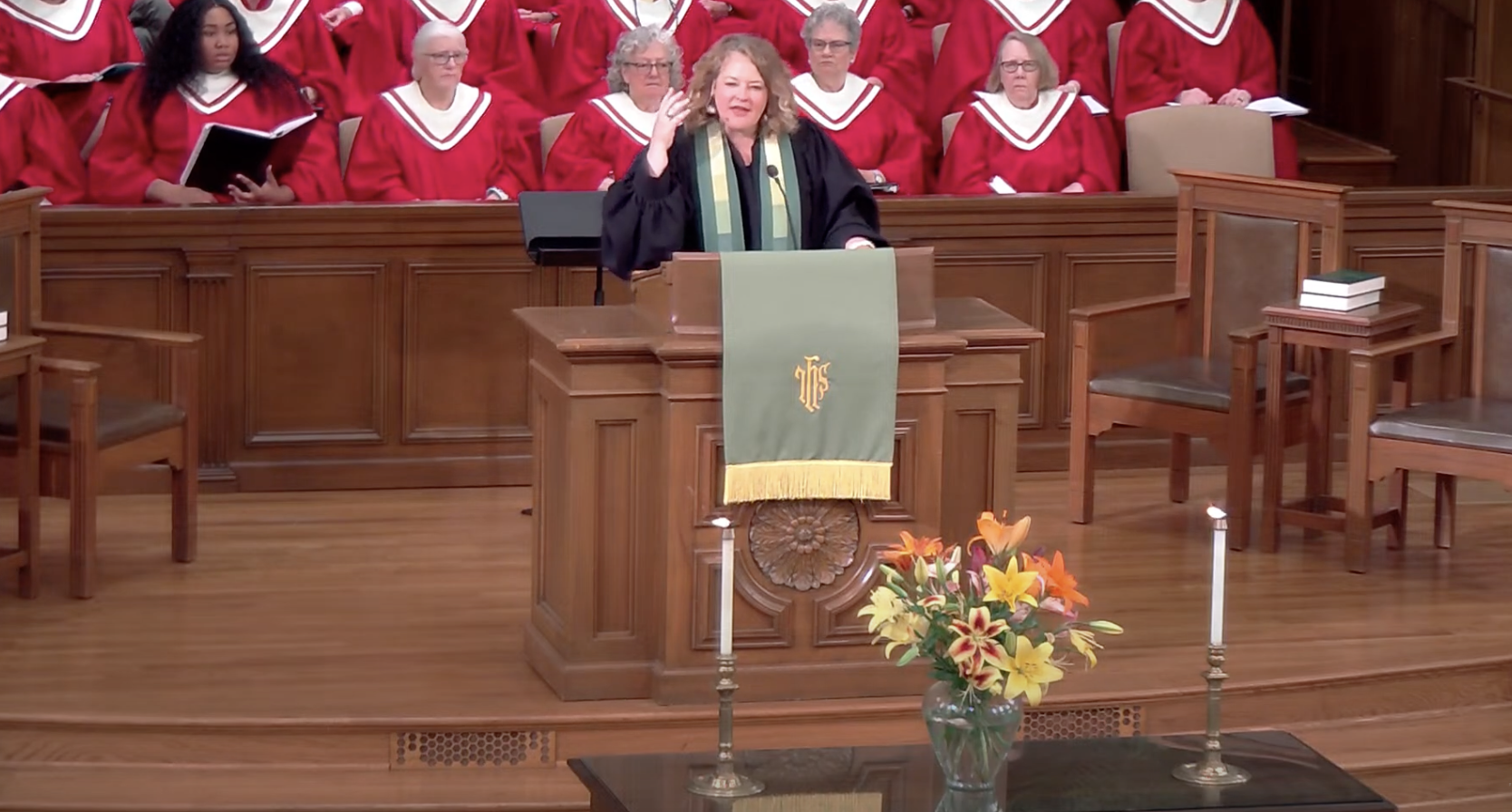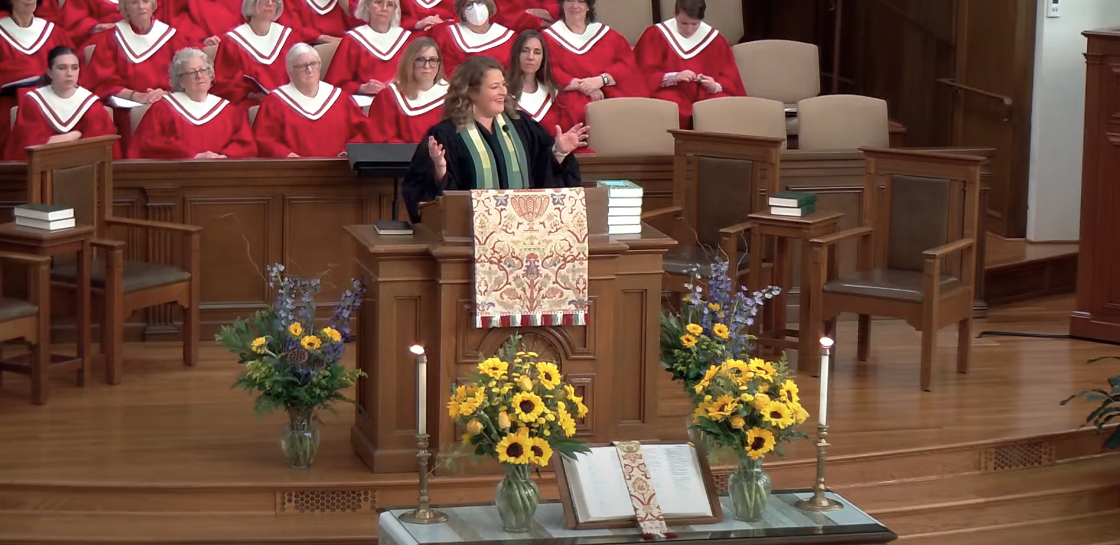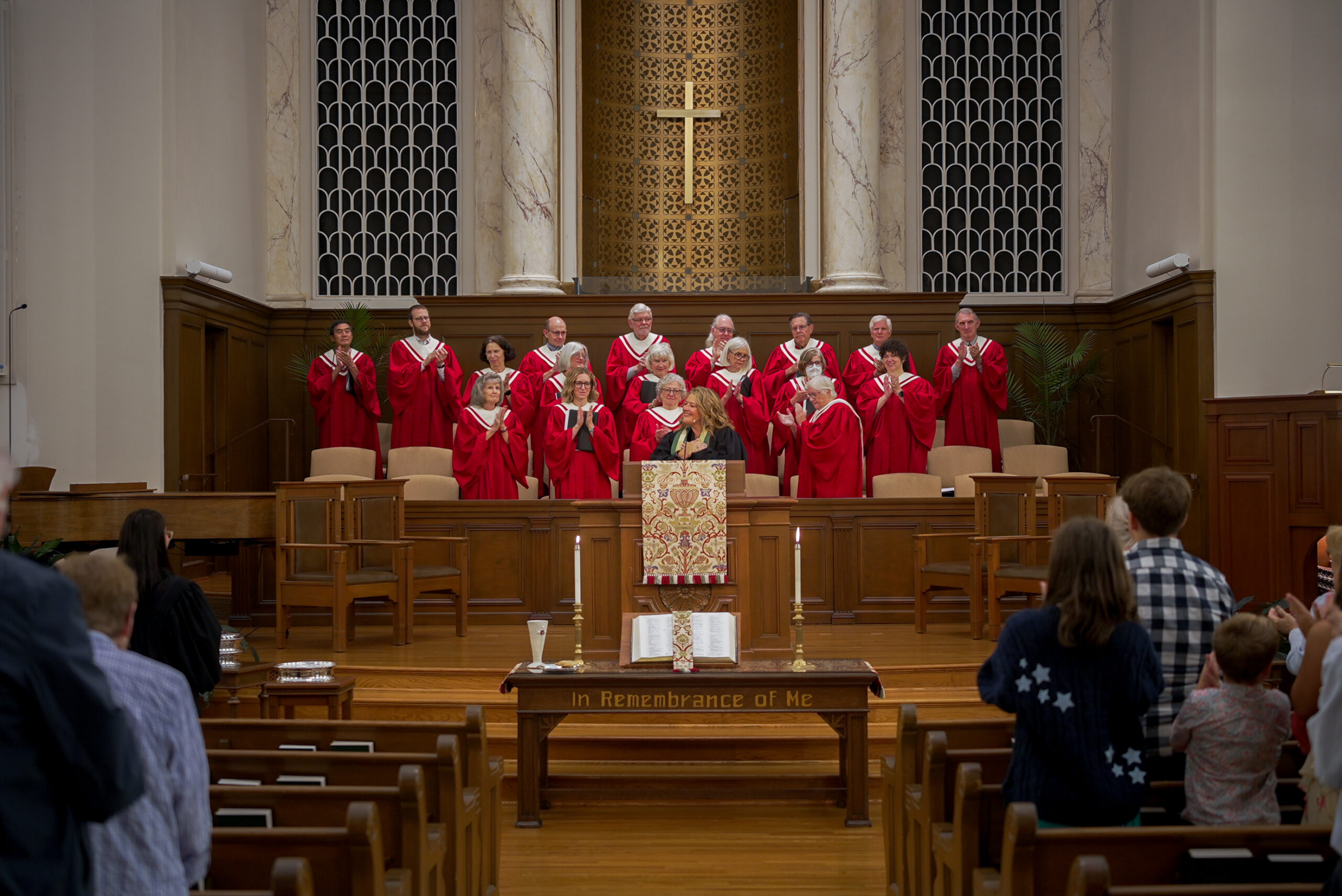I.A sweet Italian grandmother once was adjusting to her surroundings in her new American home. As so many do, she’d immigrated from her native land to the land of the free with high hopes for her children’s prosperity and happiness here. And yet, she found Americans’ pursuit of such prosperity and happiness to be puzzling, starting right in Aisle 4 in the local supermarket. Eyeing suspiciously the rows and rows of packaged bread, she’d ask, “why do people eat-a these things? They have-a no taste!” To her, life was just too short to eat anything but good bread and to drink anything but good wine. (Can I get an ‘amen’ in the room?!) As her granddaughter later said, “little wonder we spent nearly every Saturday of my childhood making our own bread, pizza, and pasta for our family. Why settle for bread that is not bread, for life that is not life?”
Last week, we talked some about Wonder Bread as this sort of stand in for an ultra-processed, “have it your way” kind of food. (They have–a no taste!) In a similar vein, think with me about other items we might put in that category, like the chip aisle filled with colorful packaging and slick marketing, or the cookies promising comfort in every roll. Much the same way that the packaged snack industry would have us believe that these are the things to reach for when hunger strikes, so too would the world have us “grab and go” when times get hard, when stress hits, when anxieties stir us up. So what might we find to really nourish us – not just stave off a starving stomach? What must we do when we aren’t just hungry for bread that is not bread, but hungry for a life that is life?
II.“I am the bread of life,” Jesus begins in our text from today. We’ve remained in John chapter 6 this month, listening carefully to the stories of Jesus that center around bread and meals. We’ve remembered how Jesus fed the crowds on the hillside, abundance from scarcity, and how he has promised bread from heaven, bread that gives life.
Our context has shifted slightly today, as we pick back up the story. Jesus is no longer with the thousands of people or the few disciples, but rather with the Jewish faithful. John tells us that some of them begin to grumble about Jesus’s claim to be the bread of life. He has come down from heaven?, they wonder. No he hasn’t, he’s Joseph’s boy! He’s from down the street! Doesn’t he know that we know that?
But it’s to the faithful that Jesus begins to teach. He told them their story of the Israelites in the wilderness, of God’s provision for their hunger, of manna by day and quail by night. That bread, while filling, won’t sustain, he says. Those stomachs, when hungry, won’t get full from manna. “But I am the living bread; whoever eats of this bread will live forever, and the bread that I will give for the life of the world is my flesh.” What I give will endure.
Throughout the Gospel of John, Jesus makes these “I am” statements, calling himself Bread, and Light, and Door, and Good Shepherd, and Resurrection and Life, and Way and Truth and Life, and Vine. But he starts here, with bread, perhaps because he knows that hunger is the fundamental longing of the human heart.
III.I would be remiss if I preached about hunger and didn’t call our attention to literal hunger right here in our backyard. Second Harvest Food Bank of Winston-Salem’s statistics remind us that 1 in every 5 children in Forsyth County don’t get enough food to thrive. Over 44,000 people in our county are designated “food insecure,” meaning they have a lack of access at times to enough food for an active, healthy life. Having food to eat is such a basic need, which is why Christians all throughout history have felt called to meet it. That’s why this Saturday, we’ll gather during Serve Together to pack boxes of food filled with food that will feed and nourish hundreds in our community. That’s why we continue to spread wide God’s table of love and welcome all to it.
But hunger isn’t just literal, of course. Hunger is emotional. Hunger is mental. Hunger is spiritual, you might say. The great theologians and philosophers of history give language to this existential human experience of hunger. Hunger is everywhere in our common life together, in what powers our commerce and our relationships, our geopolitical state of things and our inner life. It even is, as one writer notes, the foundation of every single fairy tale from Hansel and Gretel to Rapunzel to the Little Red Riding Hood!
One of those great theologians, Paul Tillich, wrote about “the courage to be.” For in the face of three existential threats – the anxiety of death, the anxiety of guilt, the anxiety of meaninglessness, any one of these three robbing a person of the will to live, any one a consuming hunger – God steps in. God comes to us with fresh grace, which is the courage to be. We see that throughout scripture. The Israelites are given manna by day and quail by night. Elijah is fed by an angel. The crowds are served loaves and fish. The grieving disciples are given grilled fish for breakfast on the beach in the shadow of the cross. Indeed God knows that among the spiritual hungers in our life, sometimes fresh grace tastes like the simple gift of being fed, giving us the strength to carry on.
I think it’s why church folk have for years fed each other in the face of crisis or change. Having a baby? Let me bring you a chicken pie. Recovering from surgery? Warm pot roast, mashed potatoes, and green beans will surely help. Down with a bout of flu or covid or pneumonia? Chicken noodle soup is on the way. Wracked with grief after death? When every corner of your living is touched by this loss, no need to try and figure out dinner each night. I’ll bring veggie enchiladas by in just a bit. Feeding each other becomes a tangible way to extend care. Surely we cannot take away the hardship or the challenge or the grief or the despair. But whether we’re packing a bag of food for an unhoused neighbor or showing up with a meal for a friend, we’re echo Jesus in saying that nourishment matters. Strength matters. Ordinary sustenance matters. The link between physical hunger and spiritual hunger matters. Though the journey ahead must be yours to complete, at least we can come around you and help to sustain you along the way. And perhaps we might even offer a glimpse of the sustaining grace of Jesus.
Or hear it another way, this time from Anne Lamott. Anne Lamott has written extensively about her lifelong struggle with body image, and has suggested to others in her church who share the same struggle that they prepare each meal as if they had asked our beloved pastor to lunch or dinner. They wouldn’t say, “Here Pastor, let’s eat standing up in the kitchen. This tube of barbecue Pringles is all for you. I have my own,” and then stand there gobbling from their own tubular container. No, they’d get out pretty dishes, and arrange wonderful foods on the plates, and set plates at the table, plates filled with love, pride and connection. That’s what we have longed for, our whole lives, and get to create.”
But the good news doesn’t end there. The good news of the gospel is that these delicious glimpses are but a foretaste of the nourishment that Jesus provides. Name your hunger – to be right, or needed, or successful, or authentic, or knowing, or secure, or happy, or strong, or at peace – no matter the hunger, Jesus feeds. Jesus sustains. His grace is sufficient for us. His very life becomes that which gives us life. His bread leads to abundance. His table is wide and the feast is for all.
When we have experienced the sustaining food of Christ, we know just how shallow the foods of this world have been, and by that I mean foods both literal and metaphorical. No longer do we have to consume what we think will save us. We put down the investment accounts, and lay off the overwork. We stop stuffing ourselves with distractions and deceptions and delusions and despair. We stop starving ourselves of meaning and hope and peace and reconciliation. We allow ourselves to be hungry for God. “The work of faith, of the faithful,” Gail O’Day says, “is to allow ourselves to be fed by Jesus.”
IV.Letting ourselves be fed isn’t always easy, especially when we see ourselves as the feeders, when we provide the chicken pie and the veggie enchiladas, when we are the ones who have our lives together enough not to go hungry, the ones who know and do what’s right. Let me tell you a story from my dear friend Alan. Some years ago, he was leading a mission trip to Philadelphia. And in his words, here’s what happened:
“Such trips can so often find us dividing ourselves up between the wise and the humble, and I admit that’s just what I did as I entered a local soup kitchen for lunch.
Most of us wanted the jobs behind the counter, serving lunch. If not for the hairnet and plastic gloves, at least because it let us keep some distance from those entering – my side of the counter, your side of the counter…
But those jobs were taken quickly, and the rest of us were asked to go through the line, grab a tray of food, and sit down amidst the tables… “Talk to people. Don’t talk to people. It’s up to you. But just sit and eat.”
Well, I didn’t know how to just blend in, so I waited until the end of the line… I didn’t really need the food, I thought… but as the line dwindled, one of the line cooks – himself a man who has formerly experienced homelessness, who was now a part of this ministry – said, “You, son, come through the line…” I did as he asked… but as I received the tray, I heard in the back someone say that they were running low on food.
“Here” I said, putting my tray back.
“You take that tray,” the cook said.
“Well, I’m not hungry… I can eat later,” I said.
“No,” he said. “Take it.” So I took it… until advancing a few steps and putting it back… I sat down amidst the tables feeling somewhat satisfied, until just a few moments later the cook, in his apron, was standing over me and set the tray down in front of me… leaning over he looked me right in the eyes and said to me, “You need to get something straight… there ain’t nobody here who needs this more than you.”
I am the bread of life, Jesus says. Whoever comes to me will never be hungry.
V.Another story – author Nora Gallagher tells a story of her friend Kay, who moved from Colorado to Los Angeles some years ago. Like any transplant to a new city, it seemed to take Kay awhile to find her footing. She struggled to know where she fit, and what she needed, and how to fill it. Kay had a friend, Lucy, who sensed Kay’s need and invited her to church. Kay went along rather reluctantly, taking up residence in the back row for months on end and peppering Lucy with questions about all she was experiencing. Each week when it came time for communion, all the other worshipers around her stood and made their way to the table. Kay, on the other hand, crossed her arms tightly and stayed put.
Week after week, she sought out ways to fill her loneliness, her ache for a life that hadn’t yet come for her, her fears. And week after week, this pattern continued at church until one Sunday, the rector approached Kay after worship. Hands on his hips, he peered over his wiry glasses at Kay and tried not to sound as if he were scolding her but rather inquiring gently: ‘why don’t you come to communion?’ His tone seemed to imply she was missing something. Kay could only muster up a lame mumbled, ‘I don’t know’ when he asked, to which he replied, ‘This is our family, and this is our table. You should come.’
It had never occurred to Kay that she was the only one who didn’t partake. She warmed to his analogy about the family, but just couldn’t bring herself to stand and come.
As any good friend would do, Lucy finally asked Kay: “what are you afraid of?” ‘What was she afraid of?’, Kay wondered. The next Sunday, Kay finally stepped out in faith, knelt at the altar, and watched as the priest began to approach her closer and closer with the bowl of bread.
Kay recalled the moment, saying, ‘It was at this point that I realized I would have to open my hands. When the moment came, I came as close as I ever have to hearing the voice of God. I heard an almost audible, Come on, sister. Open your hands.
About Kay’s story, Nora Gallagher says this: “it’s dangerous, opening your hands. You don’t know what will end up in them. This may have been the smartest thing Jesus ever did. He must have thought, ‘how can I make them step into the unknown? How can I get them to let in some surprise? I know, I’ll figure out a way for them to put their hands out in front of them, empty.’”
VI.
Friends, the invitation of Christ is an invitation to come to him hungry, leading with our empty hands and giving him our yearning hearts. There are no more nourishing meals, no more intimate invitations, no more satisfying provisions. And what will we find in return? Nothing less than the bread of life for all the life of the world. So taste and see that the Lord is good! Amen!


